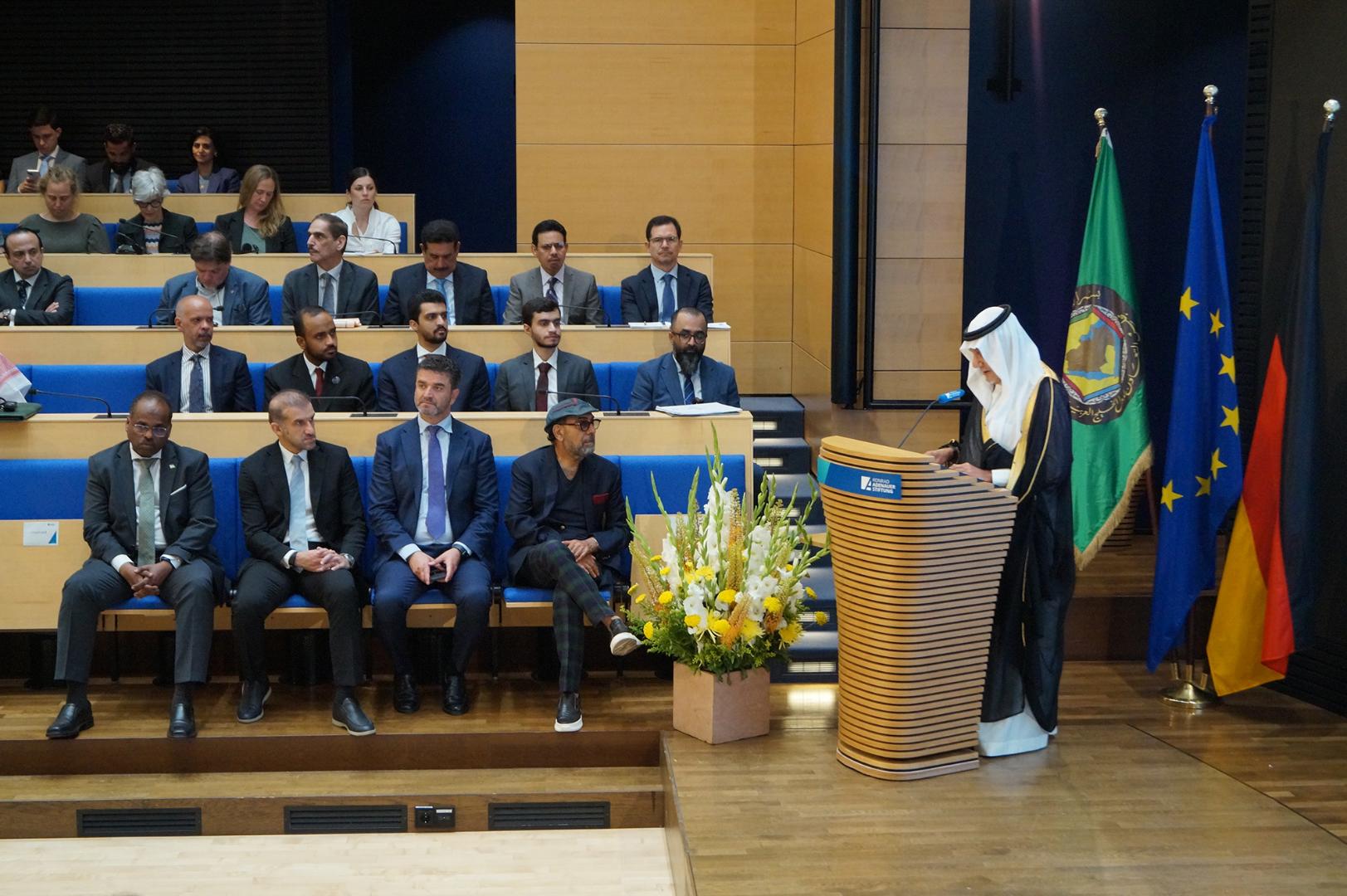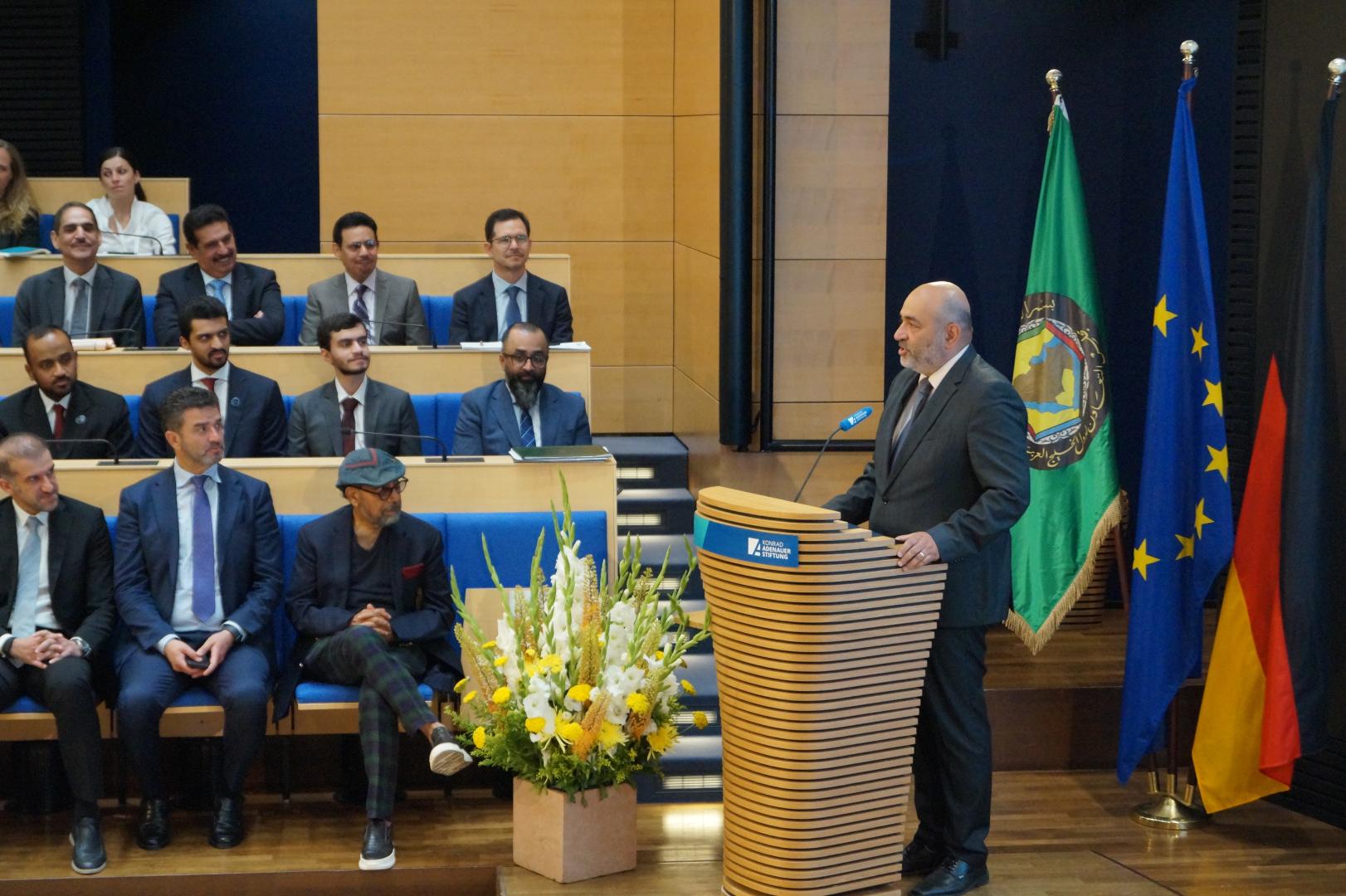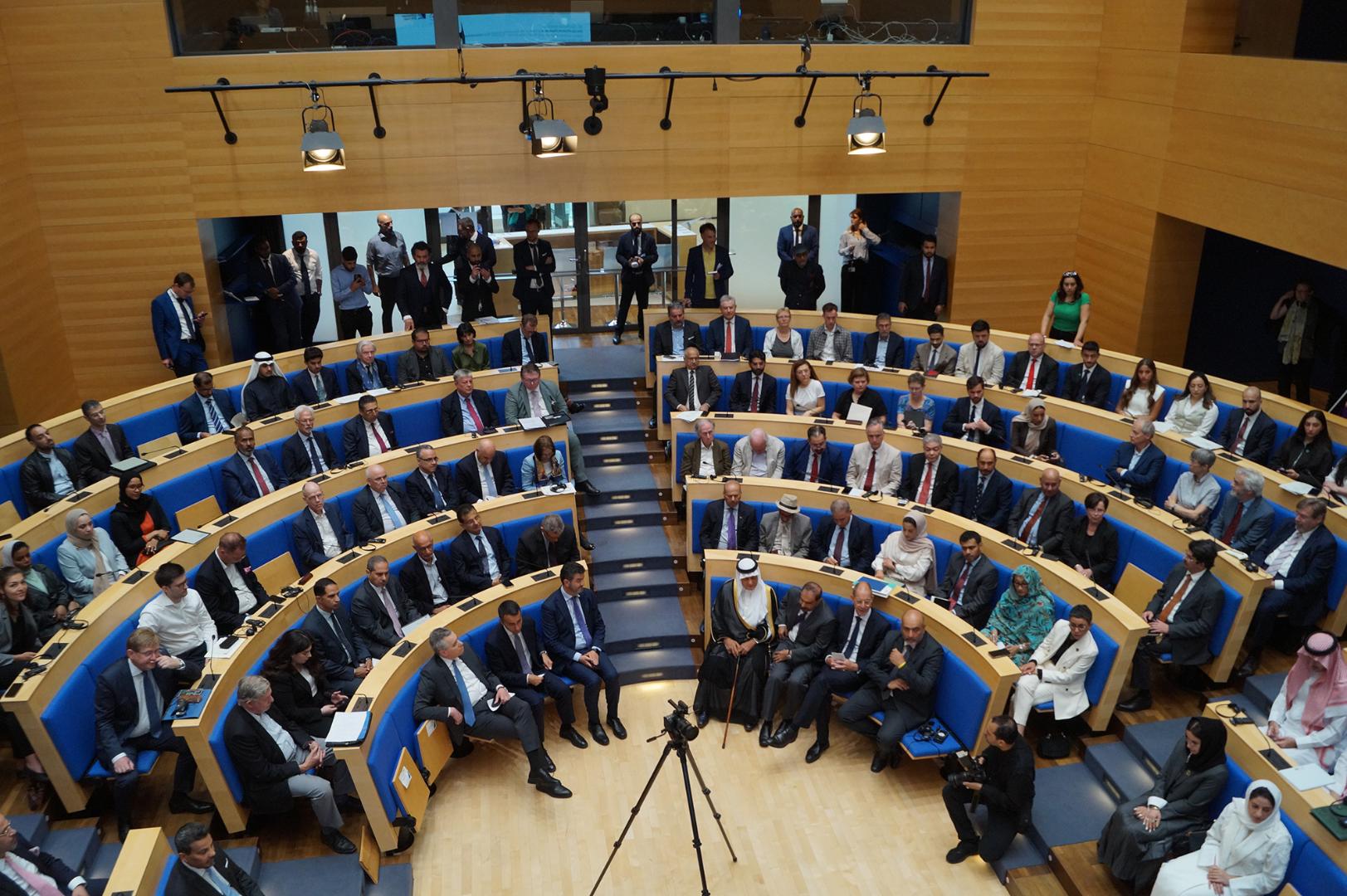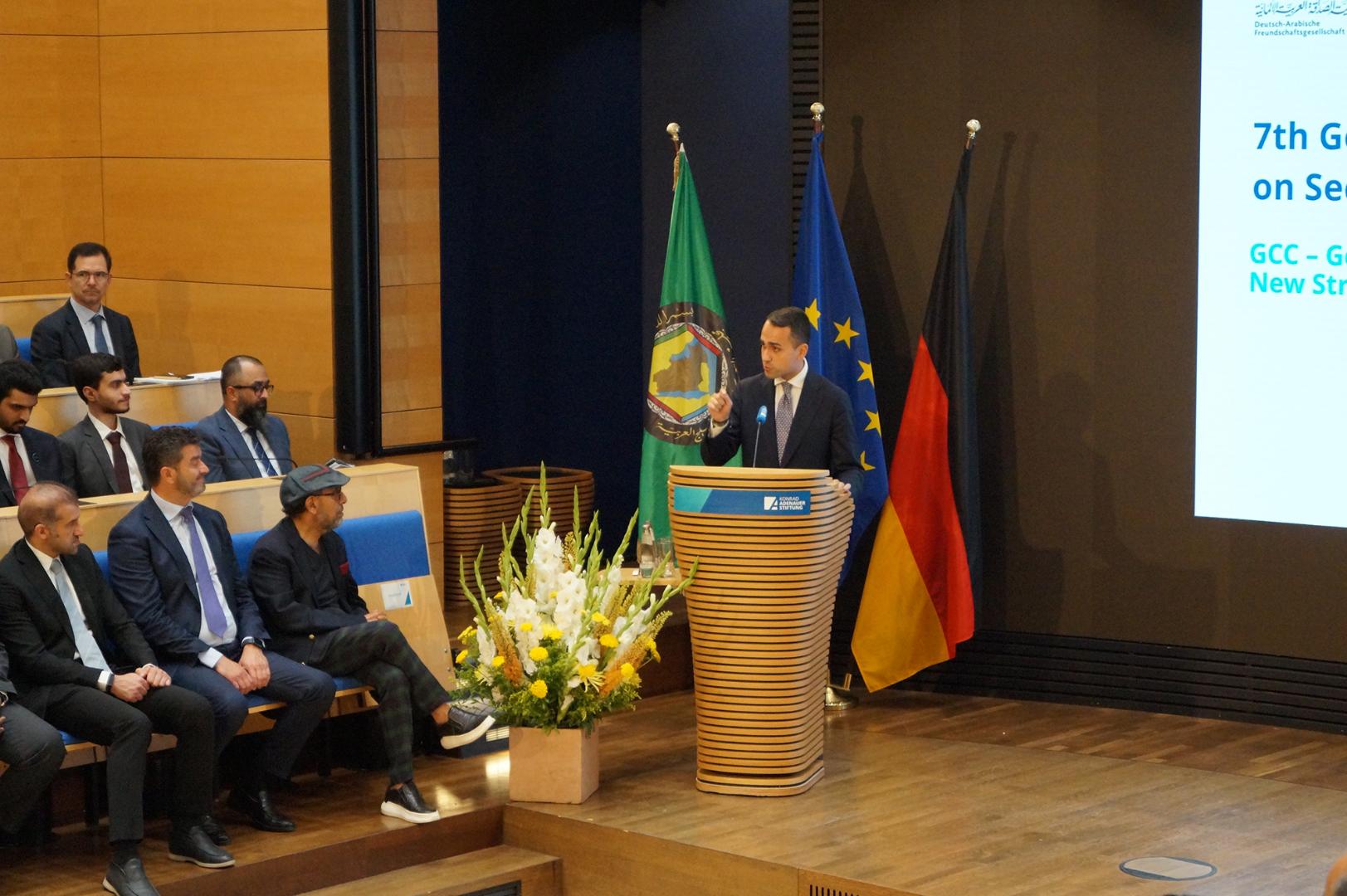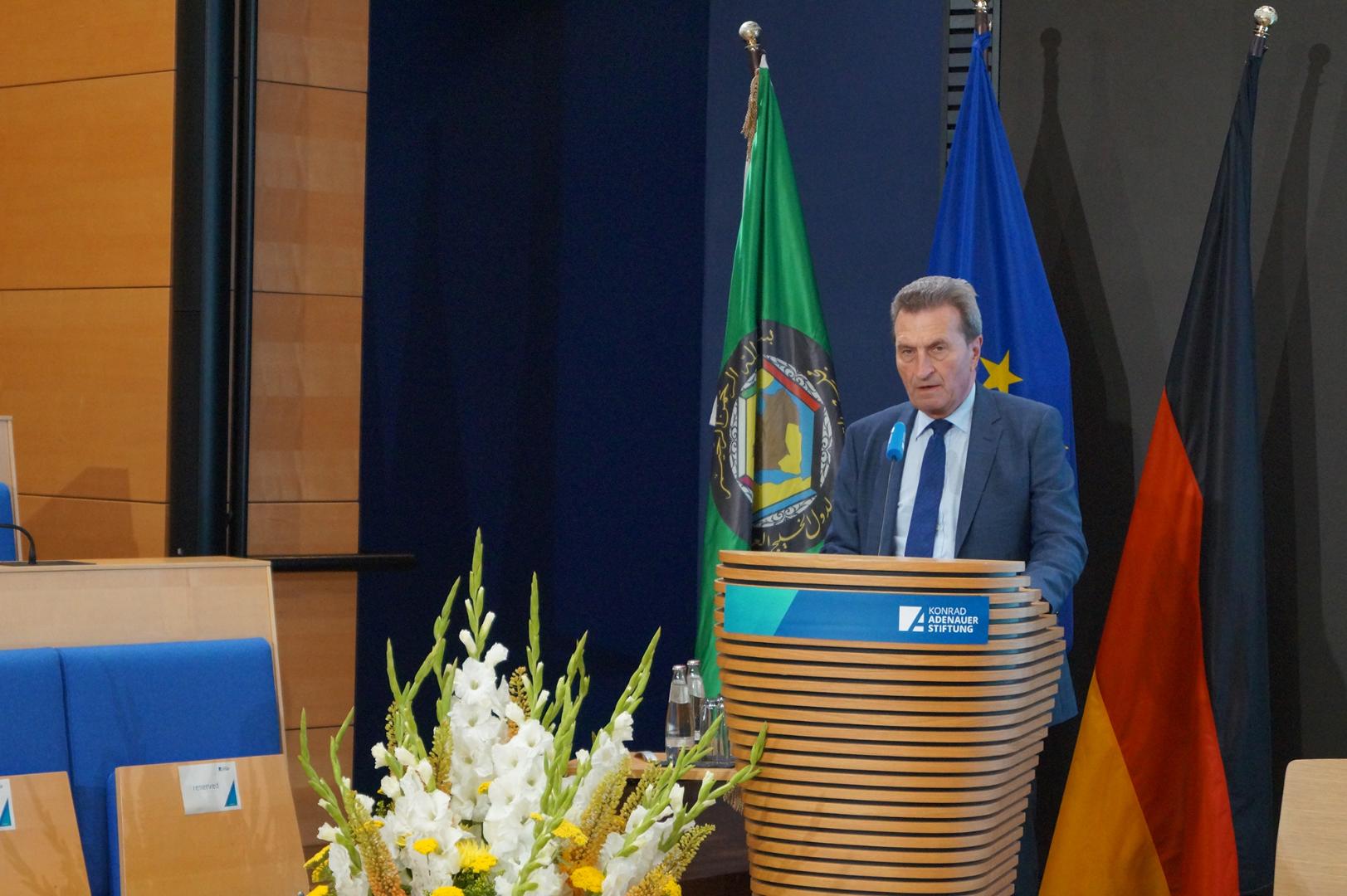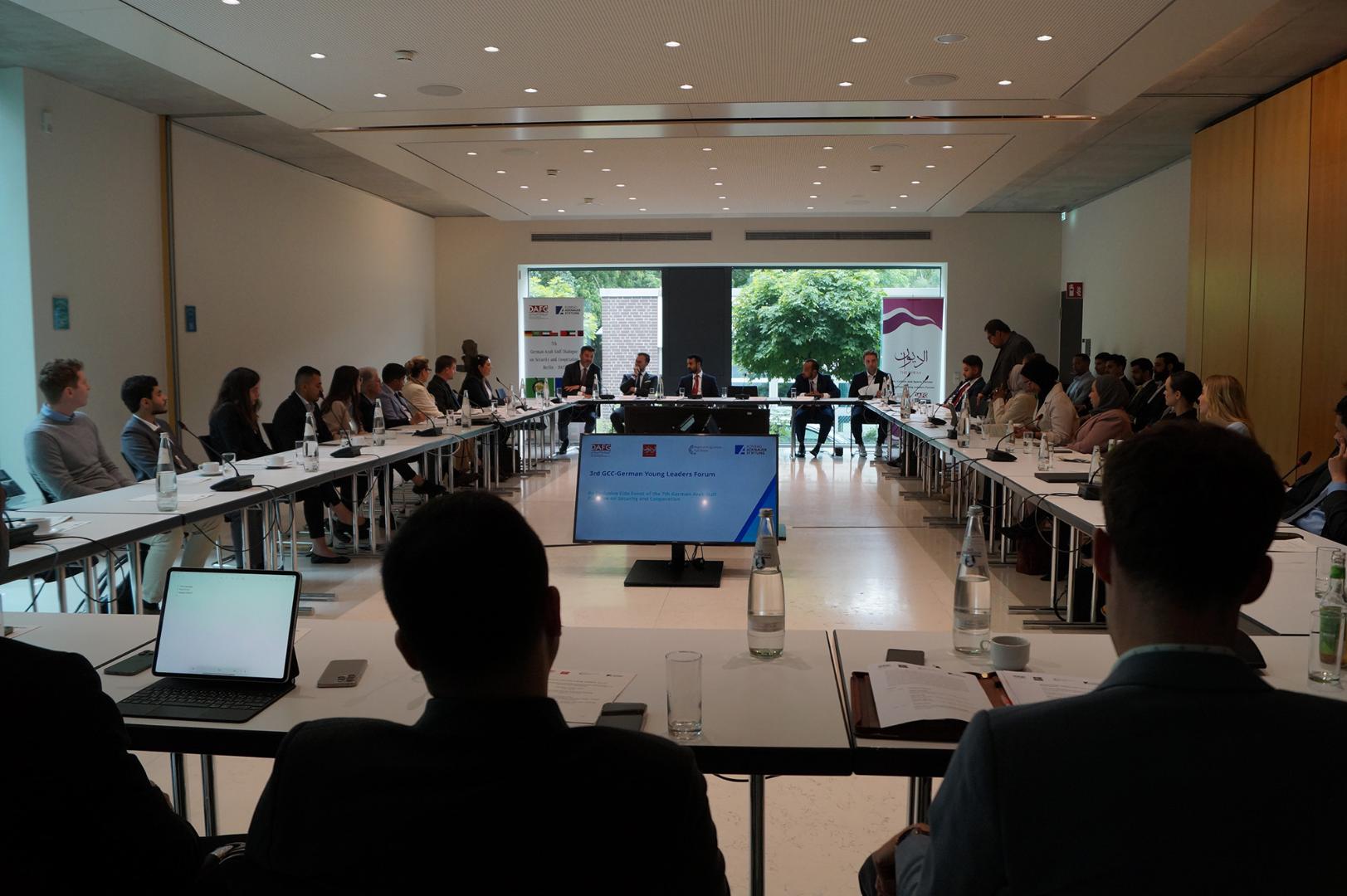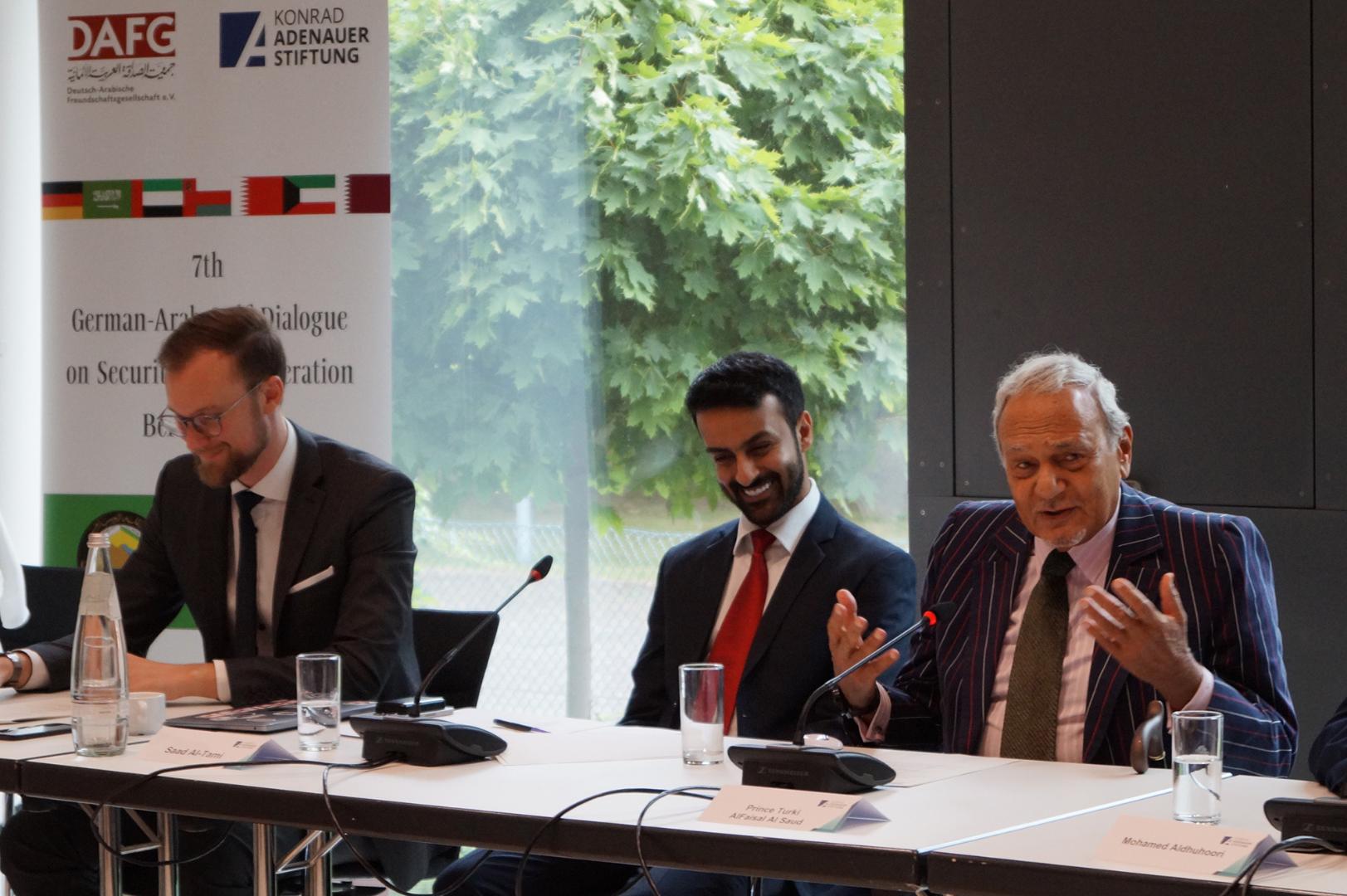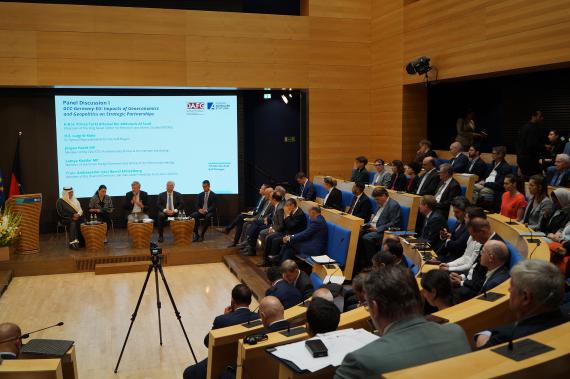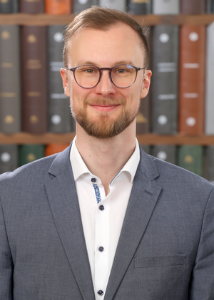During the two-day “German-Arab Gulf Dialogue on Security and Cooperation,” high-ranking experts, political decision-makers, scientists, and representatives of the business community from the Gulf region as well as from Germany and Europe discussed current developments in the Middle East and future paths for relations between Germany and Europe with the Gulf states. The Konrad Adenauer Foundation (KAS) and the German-Arab Friendship Association (DAFG) once again had the honour of welcoming Prince Turki Al Faisal, Chairman of the King Faisal Center for Research and Islamic Studies (KFCRIS) from Saudi Arabia, as the honorary chairman of the German-Arab Gulf Dialogue in Berlin.
Dr. Gerhard Wahlers, Deputy Secretary-General of KAS and Head of the European and International Cooperation Department, emphasised KAS's long-standing commitment to German Arab relations and its work in the Gulf States: "I know that our political systems are different, that our economic systems are different. But I also know that the Gulf is not only an important player, but also that our interests overlap in many areas. And that is why we believe it is important to create a platform for dialogue."
In his speech, Prince Turki recalled Chancellor Konrad Adenauer. The rules-based order that the first Chancellor of the Federal Republic of Germany helped to establish after the Second World War is now under pressure. He emphasised: “That is why cooperation between Europe and the countries of the Gulf Cooperation Council (GCC) is of the utmost importance, so that both can overcome the dangers of this perilous time of great change.”
Deputy Bundestag President Omid Nouripour MP, reiterated this and stated, regarding relations between the EU and the GCC: "The increasing integration of the Gulf Cooperation Council is a great idea and good news for us. [...] The fact that the GCC and the European Union are coming together, supported by strong nations and member states, is great for all of us in terms of exploring the opportunities and then the potential that we should not forget in these dark times."
The EU Special Representative for the Gulf Region, Luigi Di Maio, emphasised that cooperation between the EU and the GCC states had only just begun and appealed: “We must not fear the activism of other geopolitical actors in the region. We must fear our inaction.” He stressed the importance of not leaving the field to others but rather using formats such as the German-Arab Gulf Dialogue in Berlin to achieve more progress in areas such as trade, culture, and renewable energy.
The participants then discussed the future of German-Arab relations. The recent events in the twelve-day war between Israel and Iran, the conflict in the Gaza Strip, and the consequences for the region were also discussed. The high-ranking panellists included Jürgen Hardt MP, Alexander Radwan MP, and Lamya Kaddor MP, as well as Günther Oettinger, former EU Commissioner and Minister-President of Baden-Württemberg. The DAFG was represented by its president, Dr. Otto Wiesheu, vice president Houssam Maarouf, Lebanese ambassador Dr. Mustapha Adib, and ambassador Bernd Mützelburg, among others.
In addition to expert workshops on foreign and security policy, cultural diplomacy, energy cooperation, and potentials for economic partnerships, the GCC-German Young Leaders Forum took place for the third time as a side event. At the forum, held for the first time in cooperation with the Kuwaiti organisation The Diwan, young experts, diplomats, and scientists from Germany and the GCC states came together with decision-makers and specialists to strengthen mutual understanding and explore new avenues of cooperation. The young representatives discussed not only issues of security and economic policy, but also areas such as cultural cooperation, joint educational initiatives, and the opportunities offered by new technologies.




